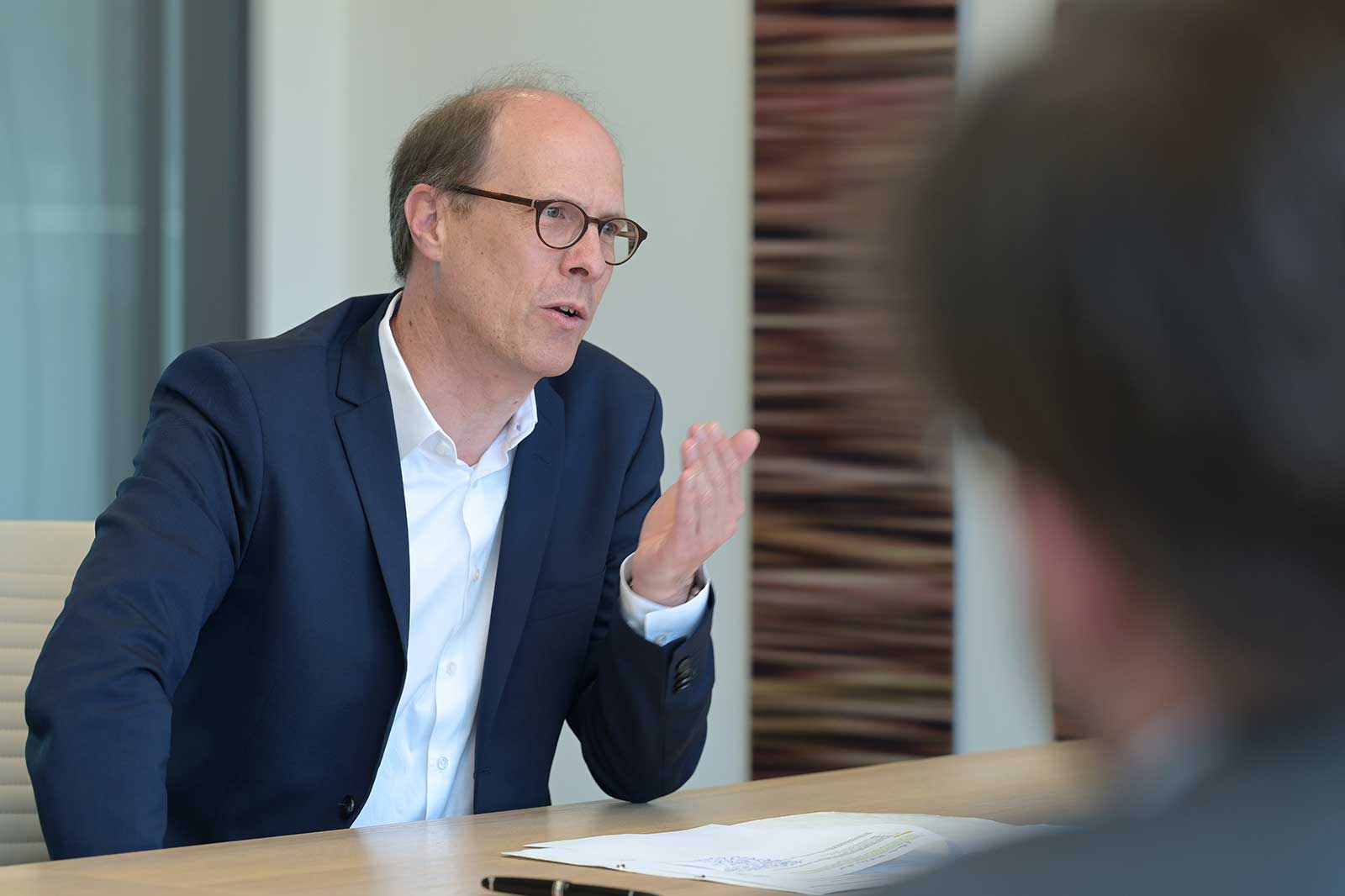


There is war in Europe. The human suffering in Ukraine is devastating. In Germany, we are also feeling the impact of the war – our energy supply, for example, is particularly affected by the lack of gas supplies from Russia. There has never been such widespread concern in Germany about the risk of an energy supply emergency during the winter. Besides the empty gas pipelines, there are other factors that give us cause for concern. In France, almost half of the nuclear power plants currently produce no electricity. Drought and low water levels have resulted in reduced hydropower production in southern Europe. Moreover, due to low hydropower reservoirs in France, Italy, and Spain, below-average electricity production is expected to continue for the next couple of months. These factors all exacerbate the energy shortage.
This poses enormous challenges for politics, business, and society. The next two winters are going to be particularly difficult. It will probably take at least that long until alternative import capacities for gas are available to replace the quantities of gas that previously came from Russia through the pipelines. To avoid an energy shortage in the short term, we need to implement a combination of measures. One such measure is the construction of floating terminals off the German coast to feed liquefied natural gas, or LNG for short, into the gas grid. These terminals will provide Germany with a substitute for the lacking pipeline gas from Russia in the medium term.
This is where RWE is lending a hand. On behalf of the German government, we have chartered two special vessels that can ship between 10 and 14 billion cubic metres of gas per year to feed into the German grid. In Brunsbüttel, we are responsible for the land-side connections to accommodate such ships. We are also participating in the construction of an LNG terminal. In addition, we are active in the Baltic Sea, where we are planning to build a floating LNG terminal off the coast of Lubmin in cooperation with our partners, Stena Power & LNG Solutions.
First and foremost, gas is needed in the industrial sector, where manufacturing is a major source of employment and prosperity. In electricity production, it can largely be replaced by other energy sources; however, this means that coal-fired power plants have to be temporarily reconnected to the grid. This is not an ideal solution for the climate, which is why it must only be a provisional step. I can speak for RWE when I say that we stand by the coal phase-out. It is necessary, and it will be coming.
In the long term, this means two things for the German energy supply: it must become more independent of individual suppliers, and it must become climate neutral. These two things must go hand in hand. Moreover, there is a simple formula for both: energy transition. Renewables, storage, hydrogen-compatible gas-fired power plants, hydrogen – these are the keys to a more sustainable, more independent energy system.
This modern energy system must also be affordable, without the staggering price escalation that we are currently witnessing in the gas and electricity prices. Many companies, as well as citizens, are severely affected by the price crisis and are no longer able to bear these high energy costs without support. It is appropriate for politicians to help relieve their burden. There is no question that energy companies need to step up and help, too. The most effective way for companies to do so is to address the root cause of energy shortages – through massive investments in energy supply and infrastructure. Billion-euro investments by the energy industry, which can make the electricity and gas supply more robust and more sustainable, depend on reliable framework conditions. Short-term interventions by the German government, such as imposing a levy on so-called windfall profits, must be designed to safeguard the continued functioning of the market as well as the companies’ investment capabilities under any circumstances. As with any other measures, such interventions must be limited from the outset to a fixed period of time.
Currently, the overwhelming majority of the electricity is sold to customers and traded on the exchange on a long-term basis. It is therefore not subject to the fluctuating prices on the daily market, which ensures stability. For this reason, the incentive for such forward transactions must be maintained in all cases. Further, it would be helpful if the state could facilitate the access to liquidity that companies currently need for forward transactions on account of the price rally.
Investment for the purpose of realising a modern, climate-friendly, affordable energy supply – this is the challenging task that Germany is facing now. Many companies want to contribute. At RWE, we launched our “Growing Green” strategy last year. We want to invest a worldwide total of 50 billion euros in renewable energies, storage, backup capacities, and green hydrogen by 2030. We have allocated 15 billion euros of this amount for Germany alone. Here, we want to realise every project that is possible.
What the energy industry needs above all is a suitable framework. This includes an attractive market design, sufficient space for new plants and faster approval procedures. Encouragingly, politicians have put together new packages for these goals. Also, they have shown that action can be taken quickly during a crisis. This spirit needs to be maintained. After all, the war on Ukraine and the resulting energy crisis by no means signify the end of the energy transition; on the contrary, they signify “now more than ever!”
I am convinced that although the energy crisis has hit us hard, it can be overcome. Through short-term measures that will guarantee security of supply. And through long-term actions that will pave the way for a more independent, diversified, and climate-neutral energy system. Our country can work towards this achievement, and our country can invest its way out of the crisis.

